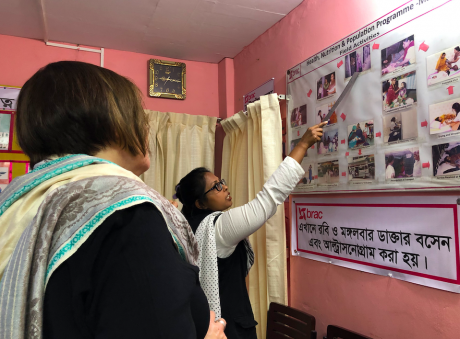Reproductive and sexual cultures are complex, lived phenomena which can only be researched through interdisciplinary and multi-method approaches. Sussex has faculty expertise in such approaches across its schools and departments (anthropology, sociology, gender studies, arts and humanities, health sciences, development).
About CORTH
The centre provides an intellectual space for bringing researchers together for intensive research, critical thinking and the development of an interdisciplinary body of scholarship on reproductive and health cultures. It promotes the dissemination of cultural and interpretive understandings of the interconnections between reproduction, sex, health and technologies to health planners and policy makers. The centre fosters a strong research environment for international and national postdoctoral students who are currently seeking to gain research guidance from Sussex faculty and be based at the University. Through hosting visiting researchers and fellows, it seeks to develop collaborative projects, produce quality research outputs and connect Sussex faculty and graduate students to key thinkers and policy makers in the field of reproductive and sexual health research.

Aims and objectives
The main aims and objectives of the centre are:
- To bring culture, political economy and discursive power frameworks to the heart of maternal, sexual and reproductive healthcare scholarship, practice, and policy making and implementation.
- To bring researchers and non-academic partners to address, and have policy impact, in the critical domains of reproductive, sexual and maternal health, especially with reference to health inequalities, technology regulation and population policies.
- To bring together stakeholders in reproductive health research, practice and policy globally, i.e., across northern and southern countries, through forging connections across a number of networks within each context, including state and civil society actors, with a specific aim of engendering South-South exchange; to design collaborative research and policy impact projects with the partners identified in these networks, and to promote work of researchers in civil society organisations.
- To translate and communicate ethnographic research methods for the understanding and use of health providers, public health practitioners and policy makers; to hold training workshops in ethnographic methods for health researchers; methodologically to bridge the gap between healthcare policy, quantitative health research and ethnography.
- To gain large programme and centre funding to house active researchers and visitors and sustain international networks to establish Sussex as a global hub for research and dissemination on sexual reproductive health, maternal health and health rights. To bring together a cross-section of Sussex academics working on sexual reproductive health issues across campus to further enable international links.
Banner image: credited to Unnithan Res-062-23-1609


